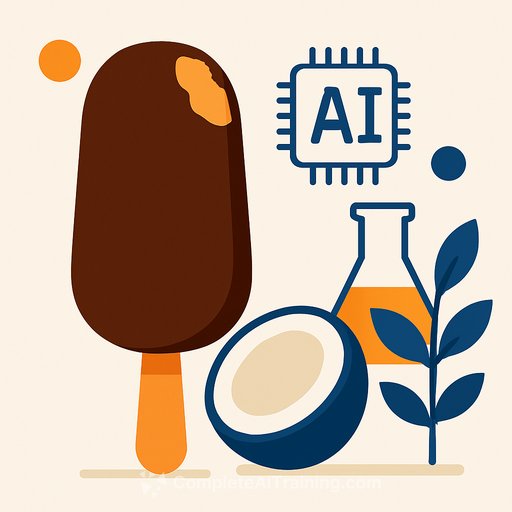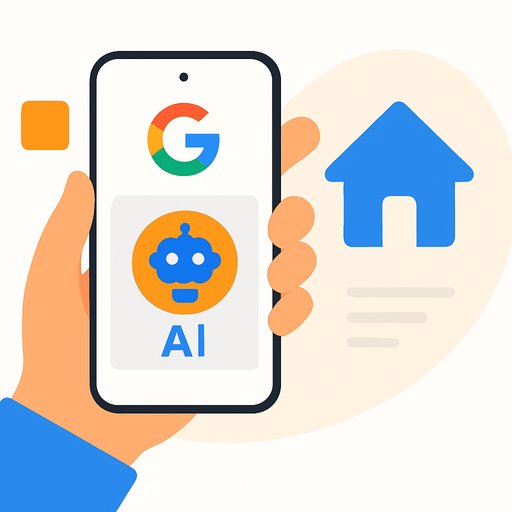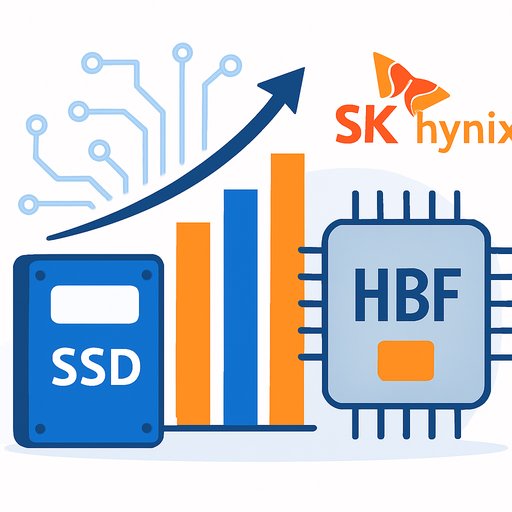Magnum Ice Cream taps NotCo's AI to speed healthier, cost-smart product development
Magnum Ice Cream has partnered with Chilean start-up NotCo to use its Giuseppe AI platform to reformulate existing products and build new lines ahead of Magnum's planned public listing in November. The focus: indulgence that still meets rising demand for lower-calorie, plant-based, and cost-efficient options.
"We believe that the real magic happens when AI, robotics and human expertise come together, each exceptional on its own, but exponentially more powerful in combination," said Zbigniew Lewicki, chief research, design and innovation officer at Magnum.
NotCo, known for collaborations with major food companies like Kraft Heinz on plant-based products, will apply its AI to analyze caloric content, explore plant-based formulations, and counter commodity price swings. "It's extraordinary that ten years after we first envisioned AI transforming everything, we're now helping, among others, the world's largest ice cream company overcome their most complex growth and innovation challenges," said Matias Muchnick, CEO of NotCo. "As we look ahead to our next chapter, we're beyond excited to partner with TMICC and supercharge its innovation roadmap with our AI technology."
Why this matters for product development
- Faster cycle times: Algorithmic ideation narrows viable formulas early, reducing lab iterations and shelf delays.
- Cost resilience: Modeling ingredient swaps against price volatility helps protect margins without killing taste or texture.
- Health momentum: With the "Make America Healthy Again" push, calorie-aware and plant-forward SKUs earn more shelf space and retailer support.
How Magnum and NotCo may apply AI in the workflow
- Formulation search: Generate and score candidate bases, inclusions, and coatings for calorie targets, clean-label constraints, and sensory proxies.
- Cost modeling: Simulate commodity movements (dairy, cocoa, sugar) and recommend substitutions that hold mouthfeel and meltdown behavior.
- Plant-based design: Map functional analogs for dairy fats and proteins to maintain snap, creaminess, and overrun within target specs.
- Feedback loops: Ingest consumer reviews and sensory panels to re-rank formulas and tighten spec ranges for scale-up.
Immediate actions for PD leaders
- Define success metrics: Time-to-first-pass (TTFP), first-pass yield (FPY), margin lift, sensory acceptance at n-size, and formulation cycles per month.
- Codify constraints: Label rules, allergen boundaries, regional regulations, and retailer scorecard thresholds.
- Stand up a digital brief: Structured inputs (targets, bans, cost caps, claims) the AI can parse without manual rework.
- Set a test cadence: Weekly concept pruning, biweekly lab sprints, monthly consumer validation.
Data and integration essentials
- Ingredient ontology: Functional roles, substitution graphs, and supply risk tags.
- Sensory database: Trained panel data mapped to formulation attributes (e.g., fat phase, emulsifier system).
- Manufacturing constraints: Line capabilities, overrun limits, tempering curves, and packaging interactions.
- Systems link: Connect AI outputs to PLM/ERP so BOMs, specs, and costings update in one place.
90-day pilot plan
- Weeks 1-2: Build guardrails (claims, allergens, cost/serving), choose 2-3 product targets (e.g., calorie-reduced classic bar, plant-based limited edition).
- Weeks 3-6: Generate and screen 50-100 candidates per target; lab down-select to 6; run mini sensory with clear accept/reject gates.
- Weeks 7-10: Iterate based on panel data; validate cost models with procurement; confirm manufacturability with ops.
- Weeks 11-12: Lock specs, run pilot on target line, and prep retailer-ready documentation.
Metrics to track
- Concept-to-pilot lead time
- Ingredient cost variance vs. baseline
- Calorie reduction while maintaining sensory acceptance
- Iteration count per SKU to hit gate criteria
- Predicted vs. actual pilot yields
Risk and governance
- Quality: Validate AI-suggested substitutions against known stability risks (fat bloom, ice crystal growth, heat shock).
- Claims and compliance: Pre-clear claims (vegan, non-dairy, reduced calorie) with regulatory early.
- Supplier readiness: Confirm lead times, spec variability, and dual-sourcing paths for any new inputs.
- IP: Clarify ownership of AI-generated formulations and any shared models.
For more on NotCo's platform and past collaborations, see NotCo. Brand context is available via Magnum.
If you're building similar AI capabilities inside your product org, explore practical training paths by role here: Complete AI Training - Courses by Job.
Your membership also unlocks:






